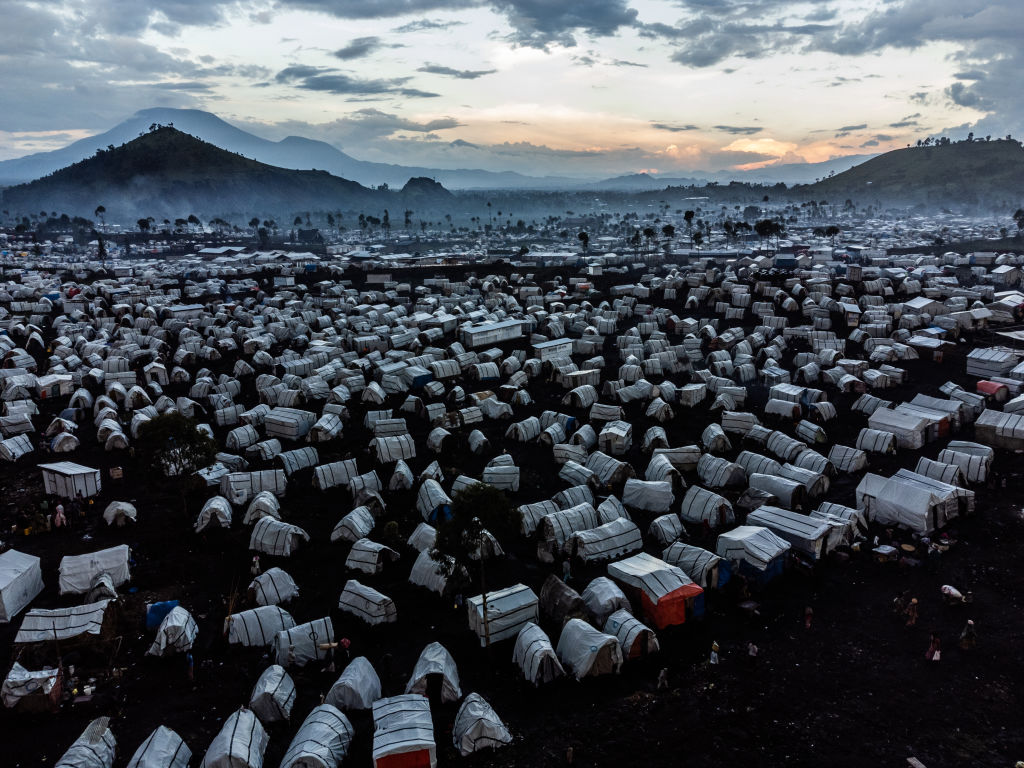Eastern DRC Struggles with Seemingly Intractable Conflict
ADF STAFF
For months, the citizens of eastern Democratic Republic of the Congo (DRC) have witnessed a major military buildup, cease-fires and negotiations — all aimed at ending the M23 rebels’ reign of terror.
With precious little security in their daily lives, many wonder if the region is stuck in a permanent state of conflict.
Researchers Judith Verweijen and Christoph Vogel examined the last three decades of violence and found it has been “increasingly driven by the legacy of previous unsolved problems.”
“Peace deals, such as the 2013 deal with the M23, have generally remained on paper,” they wrote in a May 30 article for The International Peace Institute’s Global Observatory publication.
“Not only have the structural issues driving the violence remained largely unaddressed, the non-implementation of agreements has often led to renewed violence owing to the resulting grievances. Profound political efforts will be needed to break this vicious circle.”
The East African Community Regional Force (EACRF) deployed thousands of Soldiers between November 2022 and April 2023. Despite positive reports of M23 fighters withdrawing, civilians say the rebels remain in some of the towns that were supposedly liberated.
“The arrival of the EAC Soldiers has changed nothing,” a Bunagana shopkeeper recently told Agence France-Presse. “I am still paying taxes to the M23.”
Security analyst Jean-Jacques Wondo Omanyundu criticized the EACRF, which is unpopular among some Congolese who recall past military interventions by neighboring countries.
The EACRF has taken a “passive posture despite frequent cease-fire violations by M23 fighters and their refusal to confine themselves to specific areas,” he told The New Humanitarian magazine.
The door is open for the DRC to bring in yet another regional force, this time from the Southern African Development Community, but observers remain skeptical that an end to the fighting is in sight.
The Eastern DRC has experienced persistent violence since the 1990s, including two wars. As a result, more than 5 million people have died, according to some estimates. Millions more have been forced to flee their homes.
More than 120 armed groups, including extremists, anti-government insurgents and local militias, still operate primarily in the Ituri, North Kivu and South Kivu provinces.
Some fight across ethnic lines. Some fight as proxies for neighboring governments. Some fight in defense of their communities. Others fight for territory and control of valuable mineral resources.
“For all these years, we are going back in circles,” Onesphore Sematumba, an analyst with the Crisis Group, told Al Jazeera.
Some experts argue that there is a need for a “peace dividend” where all the countries in the region see that it is in their economic interest to promote peace.
One complicating factor is gold, which rebel groups and outside actors have fought over for years.
“Gold is especially sought after in the eastern DRC –– it is extremely easy to smuggle across borders and past checkpoints, important qualities in the shadow economy,” Congo Research Group Director Jason Stearns wrote in a May 15 blog post.
It is also sought after by the DRC’s neighbors. Rwanda’s largest export is Congolese gold. In 2014 it made up 1% of Kigali’s exports and by 2020, it had surged to 47%. Uganda showed a similar trend, as gold from eastern DRC constituted 56% of its exports in 2021.
“It is clear that the eastern Congo is seen as a place of geopolitical competition for Uganda and Rwanda,” Stearns wrote.
Verweijen and Vogel expressed hope that the vicious cycle of violence and mineral extraction on Congolese soil can be broken.
“Even when a peace deal is ultimately achieved, its long-term implementation can only succeed through sustained political commitment from all players involved, including a resolve by neighboring countries to stop conducting proxy wars on Congolese soil.”


Comments are closed.